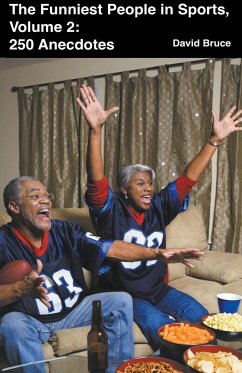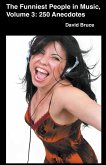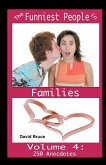This is a short, quick, and easy read. Some Sample Anecdotes: ¿ Jackie Robinson, the African American who integrated modern major-league baseball with the Brooklyn Dodgers, was an activist long before he became famous. As a boy, he and his friends would sometimes go to the movie theater and sit in the white-people-only seats. When that happened, the police would arrive to get them out of those seats. Later, while he was playing with the Kansas City Monarchs in the Negro Leagues, his team's tour bus pulled up at a gas station in Oklahoma. African Americans were allowed to buy gas there, but the men's restroom bore this sign: "WHITE MEN ONLY." Mr. Robinson walked to the restroom, and the gas station owner told him that he couldn't use that restroom. Mr. Robinson then said, "Take that hose out of the tank." The gas station owner did not want to lose any business, so he allowed Mr. Robinson to use the restroom. After that, the Kansas City Monarchs never bought gas at a gas station where they weren't allowed to use the restroom. As Mr. Robinson explained, "This is America, man." ¿ After jockey Julie Krone won a race by 10 lengths, competing jockey Miguel Rujano whipped her across the face. With her ear bleeding, Ms. Krone told the bystanders, "Excuse me, I have to go hit somebody," then she punched her attacker's nose. Ms. Krone's assertiveness paid off when she became the first woman to win a Triple Crown race, the Belmont Stakes, in 1993. ¿ Walter Payton knew how to motivate the linesmen who blocked for him. When he earned his first 1,000-yard rushing season-the first Chicago back to earn that many yards in a single season since Gale Sayers-he gave each linesman a gold watch that bore this message: "Thanks for the 1,000 yards." In addition, he gave praise to linesmen even when the linesmen felt that the praise was not due. For example, in college Jackie Slater felt sometimes that his block could have been a whole lot better, and that only Mr. Payton's incredible athletic ability had enabled him to get free and get big yardage. However, in talking to the media, Mr. Payton would give the credit to Mr. Slater and say that the block had gotten him loose to go for big yardage. Things like that motivate linesmen to work hard to protect the runner. ¿ Gaylord Perry was a great pitcher but not a great hitter. In fact, Alvin Dark (manager for the San Francisco Giants) once predicted that an astronaut would land on the moon before Mr. Perry hit a home run. On July 20, 1969, Neil Armstrong stepped onto the surface of the moon-and 17 minutes later Mr. Perry hit his very first major-league home run. ¿ In the early 1980s, the Northwestern University football team was mainly known for its losing seasons; after all, it lost 30 games in a row. In fact, when Doug Single interviewed for the job of Northwestern University athletic director, he saw a highway sign. Underneath INTERSTATE 94, someone had written NORTHWESTERN 0.
Hinweis: Dieser Artikel kann nur an eine deutsche Lieferadresse ausgeliefert werden.
Hinweis: Dieser Artikel kann nur an eine deutsche Lieferadresse ausgeliefert werden.








